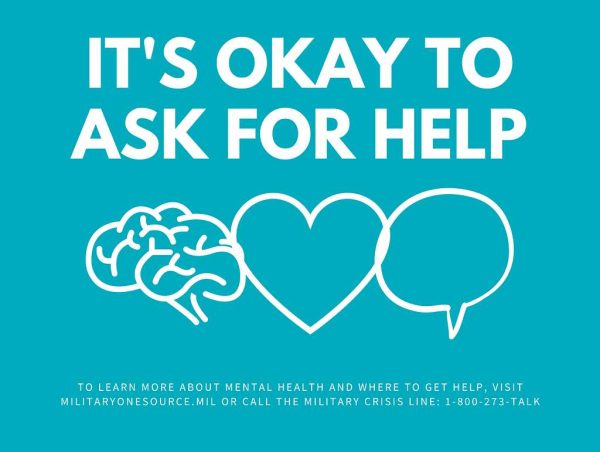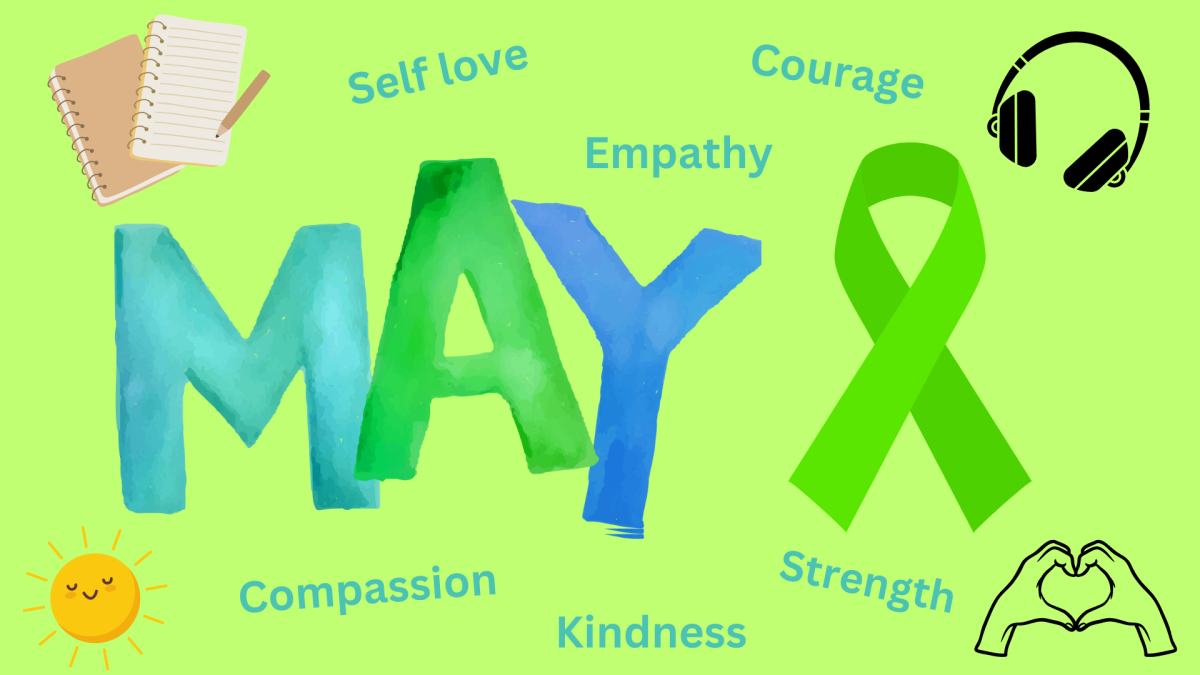Mental Health Awareness Month is a time of personal reflection and positive thinking in order to heal from past hardships. Though it may be a challenging month for some to endure, May 1 to 31 is a significant reminder to protect individual peace and support others struggling with mental health.
Mental Health Awareness Month began in 1949 to specifically recognize those facing mental health issues across the nation. More than 50 million Americans face some form of mental illness. Furthermore, one out of five teenagers also suffer from a mental illness.
The number of those struggling with mental health problems is continuing to grow. Almost two-thirds of mental health disorders even go unnoticed without getting diagnosed.
“I think Mental Health Awareness Month is so important because it’s something that is under the surface,” Sage Creek freshman Kaimana Coleman said. “It’s important that more people know about it and it spreads so people feel like other people have their problems too.”
It’s easy for people to feel alone in their thoughts and emotions, yet several others have gone through similar, if not the same, experiences.
SCHS psychologist Bob Boeckman said the month is “a chance for people to share their experiences and kind of take away some of the stigma that’s associated with seeking help and taking care of your mental health.”
Mental health can also affect physical health. It’s beneficial to become aware of how one’s brain reacts to certain situations to help deal with challenging emotions and thought processes before they lead to more detrimental health concerns.
“I think it brings awareness to psychology and some of the aspects of psychology,” said Boeckman. “Sometimes people don’t really understand what psychology is so I think it’s just a good vessel for opening the communication and getting people to talk about it.”
Psychology can be a confusing topic to understand, but it’s the overall study of the mind and human behavior. Mental Health Awareness Month strongly connects to the psychology behind why individuals have mental health challenges and how they can work to overcome them.
In recent years, it’s become more common to see teenagers enduring mental health issues.
“You got the body chemistry that can be out of wack and the brain chemistry is not fully developed,” said Boeckman. “You’re expected to deal with a lot but you don’t always have full control of everything. It’s hard to solve problems when you’re a kid and you’re not legally able to do certain things, and then you have the stressors of family life and school.”
No matter a person’s age, life can be very overwhelming and a lot to handle. It’s paramount to take steps to maintain a happy and healthy mindset. Helpful coping skills differ for each individual.
“I think it’s kind of a thing that coping skills are this magical thing,” said Boeckman. “But we all have coping skills and it’s just the things that you do that make you feel better. And I think using those and just kind of trying to isolate which ones that really help you can be beneficial.”
Even just taking one to five minutes out of the day to do something fun or calming is a great step in prioritizing personal mental health. Focusing on an activity further distracts from negative thoughts that may fill the mind.
“I feel like just talking to someone whether it’s your parents or your friends,” Coleman said. “Like getting it off your chest, whatever you need to get off and taking a day just to relax. It’s like a reset.”

Talking to others about deep emotions can be a form of release. This has also been found to help people understand psychological patterns and determine steps to move forward in healing.
Society has become very caught up in staying busy and productive on a daily basis. Mental Health Awareness Month is a reminder to take time for oneself, even if that means doing nothing but taking a break to watch TV or sleep.
SCHS freshman Kaiya Rubio said, “Every person finds comfort in different hobbies and passions, but I’m most comforted by listening to music, spending time with close family and friends or playing with my cat.”
Being around cute animals or enjoying beautiful settings of nature are two activities that tremendously help the brain to see the truth behind a life worth living. Other common coping strategies include therapy, exercising, writing, drawing, coloring, personal pampering, focused breathing, etc.
“There’s also some that people aren’t aware of that can be incorporated and beneficial,” Boeckman said.
Not all activities will work for everyone, so don’t be discouraged if one doesn’t seem to help. Continue staying positive by trying other forms of self-care.
Also, keep in mind that other people may be struggling with things that are unseen. Not all mental health problems are noticeable to fellow peers, further emphasizing the need to treat humans with empathy and compassion.
“It’s so important to prioritize your mental health and to be kind to everyone because you don’t know what anybody is going through in their mind,” said Rubio. “Just be kind to everyone and be kind to yourself.”
Mental Health Awareness Month is a month dedicated to acknowledging strength, appreciating oneself and growing internal self-love. This month also encourages people to reach out to others. Life is not easy and neither is taking steps to better individual mental health.
However, so many elements of being alive are undeniably amazing. In the long run, it’s worth getting help to be a part of those everlasting memories.
These reminders and coping mechanisms can be used year-round, not only in May. It’s kind to consistently check in with peers’ mental health, whether it be of family members, friends, schoolmates or coworkers. Not everyone facing mental health issues may be vocal about their challenges, so it’s especially important to remain patient and be a form of good-hearted aid to others.









